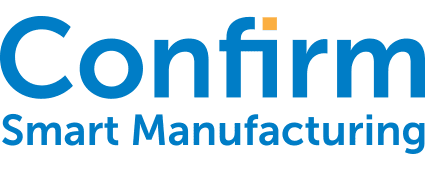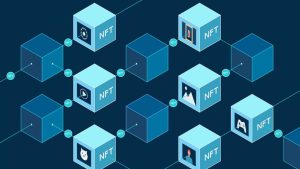Tom is a CONFIRM Post-Doctoral researcher based at the Univeristy of Limerick
” Despite the pandemic landing 3 months into my post-doc, these are actually the
best years of my life! “

Tell us a bit about your research...
Currently, I am developing techniques to detect and prevent fraud in supply chains. This is to prevent low-quality products from entering the market. Some examples are toxic food and medicines, low-quality building materials, cleaning chemicals, electronics, car and machinery components.
Many people will have examined the back of a drinks bottle or a food packet and seen how many ingredients it took to make that item. This is the same with medicines, cleaning products, electronics etc. In fact, the vast number of components and additional chemicals required to manufacturer a mobile phone is almost unfathomable. Try to find out on the web!
It is too costly for a mobile phone manufacturer, or a pharmaceutical company to mine raw materials, convert them into usable materials, integrate them together into components and then assemble many components into their final product. They would need staff with expertise in each material, factories and facilities in many different countries. It is much easier and more cost-effective to sub-contract these activities to other businesses that have more expertise.
Therefore, to manufacture these products, a business will require complex networks of other manufacturers and suppliers that span the whole planet. The sheer number of different suppliers and links in these global networks makes examining every single person who takes part extremely difficult and costly. This creates vulnerabilities where people can steal products, replace good quality ingredients with low-quality ingredients, and sell fake products as the real thing.
My research focuses on developing software that can examine, in real-time, large complex global supply chains and highlight where these different types of fraud are likely to occur so businesses can work to prevent it. The vulnerability of our supply chains has recently been exposed with the covid crisis. Where many people have become concerned about the availability of food and other products as manufacturers shut down due to their supply chains operating in vulnerable places. By examining vulnerabilities in supply chains my research will help in providing trust for supply chains of the future.
What did you study as an Undergraduate?
I studied both undergraduate and postgraduate at Staffordshire University in the UK
(After undergrad I also lectured there for 5 years so was there for a total of 11 years!)
I started off studying a HND in Forensic Computing as I was very interested in Security
but my educational background was atypical so it was a good route to HE.
I then switched to a BSc in Computer Science so I could study more theoretical stuff
(e.g AI and real-time/embedded systems) which turned out to be quite the challenge!
I finished up with a 1st, largely because my Final Year Project work (developing and
testing a malware-based security system) was presented at a good conference in the
US.
What made you decide to go into research?
Forensic Computing (now digital forensics) was a very new field when I started my studies.
The result of a forensic investigation influence whether someone would be
considered guilty of a crime or not as the court would rely upon the expert testimony
of a forensic practitioner. However, it was quite clear at the time that bias could influence these testimonies while the software packages used were closed-software, which meant that it was essentially illegal to reverse engineer them to understand how they worked and if what the claims that were being made using them were accurate.
This all really concerned me and encouraged me to go into research to illustrate these issues. I ended up working in a different field although my wider research group works on these topics so I am glad someone is finally supporting these claims!
What do you enjoy most about being a PhD Student or Post-Doc?
Despite the pandemic landing 3 months into my post-doc, these are actually the
best years of my life! I happen to be very fortunate to work within a large and internationally renowned research group that stretches across multiple universities. It exposes me to many different collaborative projects and very knowledgeable and experienced researchers who provide incredibly useful feedback which really helps my research.
Additionally, being part of CONFIRM as an SFI centre exposes me to tons of opportunities for research seminars, networking opportunities and training that I wouldn’t normally get.
Most importantly though is being a post-doc gives me the ultimate freedom to
explore whichever research topics interest me while developing my research skills
further, to position myself where I would like for my future career.
Could your research be used to combat any societal issues, such as those experienced during the COVID-19 Pandemic?
The vulnerability of our supply chains has recently been exposed with the covid crisis. Where many people have become concerned about the availability of food and other products as manufacturers shut down due to their supply chains operating in vulnerable places. By examining vulnerabilities in supply chains my research will help in providing trust for supply chains of the future.
Do you have any advice for someone who is thinking about a career or research in STEM?
If you truly want to be an adept computer scientist, try to reduce your reliance upon closed source commercial software, especially operating systems. Commercial software is designed so that it is managed by the provider. If things go wrong (which they always do) it is down to the developer and provider to fix it. This is great for people without time but as a computer scientist, you should understand how all of the inner workings of your machine operate.
Instead, install something such as Linux. It is designed for computer scientists, not computer users. Things will likely go wrong! When they do search online to find out why and how you can fix it. Repeat this often. You will learn quicker this way and become self-sufficient in acquiring and maintaining computer systems and software.
Where can people learn more about your work?
I have a recent paper published which can be found online here : https://www.researchgate.net/publication/353178708_Towards_Adaptive_Inspection_for_Fraud_in_I40_Supply_Chains









